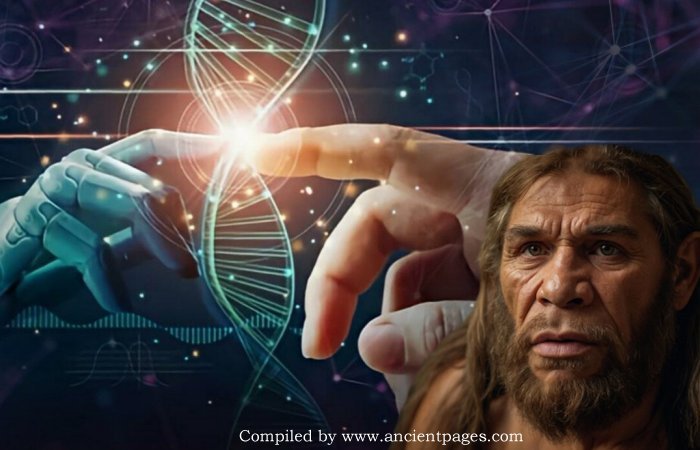How Can AI Affect Human Evolution? Predicting Changes In Brain Size And Social Behaviors

Jan Bartek – AncientPages.com – The emergence of artificial intelligence (AI) has already brought significant changes to our society and is expected to continue influencing it. A new study explores whether AI could also impact human evolution, potentially affecting brain size and social behavior.
Rob Brooks, author of “How Might Artificial Intelligence Influence Human Evolution?” investigates the gradual evolutionary effects of AI’s integration into daily life and human-AI interactions while excluding extreme scenarios like human annihilation or enslavement.
Brooks discusses potential forms of interaction between humans and AI, considering their evolutionary implications through natural selection. He draws parallels with the unintentional and intentional selection processes that occurred during the domestication of crops, livestock, and pets by humans. The paper suggests that AI technologies interact with humans in ways similar to biotic relationships found in nature, such as those between predators and prey or hosts and parasites – thereby influencing human evolution over time.
“The ways such interspecies interactions have shaped animal evolution, including human evolution, can provide some basis for predicting how AI might influence human evolution in the future,” he notes.
Human-AI interactions are increasingly mirroring human-to-human social interactions, with AI-driven technologies playing a significant role as social actors. These interactions hold substantial potential for AI to impact human evolution. Brooks’ review explores how AI might affect areas such as matchmaking through dating apps, intimacy, virtual friendships, and the criminal justice system.
He identifies several predictions, including the possibility of accelerating evolutionary trends like smaller brain sizes and changes in attention spans, personality types, and mood-disorder susceptibilities. Additionally, Brooks suggests that AI applications could alter intimacy-building processes and mating competition, potentially influencing the evolution of social behavior.
Brooks concludes that while human-AI interactions may have small cumulative effects on gene frequencies and inheritance patterns compared to their immediate impact on individual lives and cultural evolution, such as well-being and happiness, predicting how AI will transform humanity remains challenging and uncertain.
“The direction and rate of evolution can be hard to predict even for organisms kept under controlled conditions,” he writes. “Far more so the complexities of predicting selection and resulting evolution of humans in a fast-moving AI-rich world.”
The study was published in the journal The Quarterly Review of Biology
Written by Jan Bartek – AncientPages.com Staff Writer










